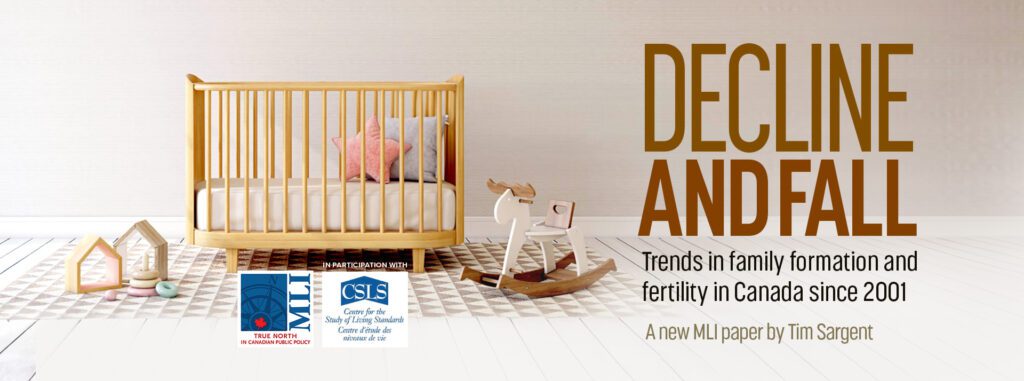This article originally appeared in the National Post.
By Shawn Whatley, October 30, 2024
There’s a big difference between what we imagine about Medical Assistance in Dying (MAID) in Canada and what actually happens to patients.
In 2015, the Supreme Court of Canada’s Carter decision overturned the ban on physician-assisted suicide and voluntary euthanasia for specific patients. The SCC cited “grievous and irremediable medical conditions” and “enduring suffering that is intolerable to the individual” as the criteria for obtaining MAID. The 2016 legislation that followed upon the decision required that death be “reasonably foreseeable.” But today, we see MAID offered proactively to vulnerable patients as part of the range of “treatment” options, and in situations where death is nowhere in sight. If we were first slipping down the terminal illness slope with increasing MAID usage, we’re now skiing down another hill altogether.
Leaving aside the inherently vague and non-medical nature of terms such as “intolerable suffering,” actual patient experience looks different than what the law suggests. Last week Canada made international headlines (again) after a 51-year-old woman in Nova Scotia was offered MAID twice during two separate pre-operative assessments for breast surgery, 15 months apart.
As reported in the National Post, Dr. Gus Grant, registrar and chief executive officer of the College of Physicians and Surgeons of Nova Scotia, said it was “clearly inappropriate and insensitive” for a doctor to raise MAID as a person was being rolled into a surgical suite. “I can understand why the patient was upset,” Grant said.
Similar cases abound: veterans offered MAID for PTSD, a Paralympian offered MAID after delays to get a wheelchair lift installed, a patient dying with “hearing loss” as their only reason for MAID, and a 41-year-old man receiving MAID for COVID “post-vaccination syndrome” — a debatable diagnosis.
In 2022, MAID was the sixth leading cause of death of death in Canada after cancer, heart disease, trauma, COVID and strokes. Absent COVID, MAID becomes fifth.
Dr. John Keown, professor of ethics at Georgetown University, argues Canada is “Skiing down euthanasia’s slippery slope.” We started by allowing voluntary euthanasia for terminal disease in adults and are now considering it for chronic disease and mental health issues, in some cases for children, too.
The slippery slope explains many things but leaves out too much. Slopes imply we have similar things along the slope. For example, terminal versus chronic disease, or physical versus mental suffering.
In Canada, we are way beyond slippery slopes. MAID is now considered viable treatment for all conditions that cause intolerable suffering, where what is deemed intolerable has no objective contours, only defined by the subjective assessment of a likely vulnerable and distressed patient. Furthermore, the suffering from a disease need not be real — simply the fear of potential suffering warrants consideration for MAID.
Instead of patients asking for MAID, as originally imagined, we now have medical regulatory colleges mandating that physicians inform patients about MAID as a treatment option, as in the case from Nova Scotia mentioned above. The College of Physicians and Surgeons of Ontario policy on Human Rights in the Provision of Health Services states that: “Physicians must provide patients with accurate, complete and unbiased information about all available and appropriate options to meet their clinical needs or concerns … Physicians must not withhold information about the existence of any relevant service, treatment or procedure because it conflicts with their conscience or religious beliefs.”
We have redefined which patients can access MAID, when they can ask for it, and what criteria qualifies them for it. Voluntary euthanasia and assisted suicide are no longer patient-driven requests; they flow from regulatory mandates that physicians must mention as available options. The slope does not seem slippery; it seems entirely new.
The right-to-die lobby spent much of the 20th century trying to normalize death. But nothing could convince the public that euthanasia was simply a “good death.” Normalizing death is hard to defend, so the plaintiff in the Carter case took a different approach. They used new language — “grievous” and “irremediable” conditions with intolerable suffering — in their criteria for “physician-assisted dying.” The lobby had found its way in. It framed the ban on assisted suicide and voluntary euthanasia as equivalent to condemning a patient to “intolerable” suffering.
Of course, this is not a medical reality. Pain can be very well-controlled, and even when it cannot, terminal sedation can eliminate conscious suffering without intending death. Nevertheless, the court accepted the bait and sided with the plaintiff, adopting their language in its ruling.
We need to revisit MAID criteria based on what patients actually experience, compared with other medical conditions. No one equates hearing loss — an irremediable and irreversible condition — with terminal cancer. We need criteria that can capture the difference and we need mechanisms to ensure criteria are followed. We need limits to MAID based on the reality of what exists, not on images conjured from the Carter case 10 years ago.
Shawn Whatley is a physician in Mount Albert, Ont., and a senior fellow at the Macdonald-Laurier Institute. He is the author of When Politics Comes Before Patients: Why and How Canadian Medicare is Failing.







